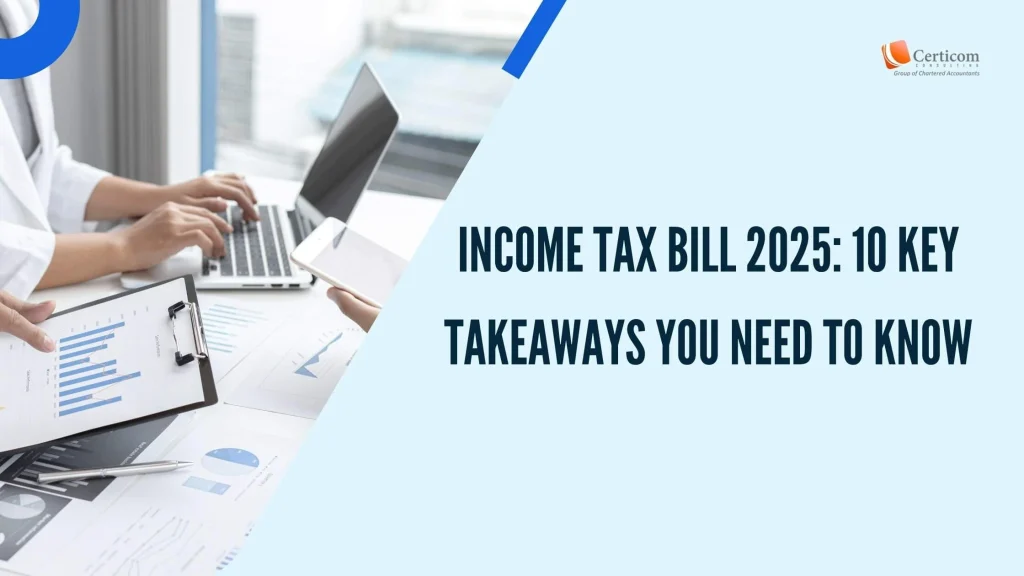Income Tax Bill 2025: 10 Key Takeaways You Need to Know

Finance Minister Nirmala Sitharaman introduced the much-anticipated Income Tax Bill, 2025, in the Lok Sabha, proposing a significant revamp of India’s personal tax laws. The bill will now undergo a review by a designated committee, which will provide recommendations before it is reintroduced for final approval. Here are the top 10 highlights of the proposed changes:
1. Introduction of the Tax Year Concept
A major shift in the new bill is the introduction of a ‘Tax Year’ to eliminate confusion between the Assessment Year (AY) and the Financial Year (FY). This change aims to streamline tax filing and improve clarity for taxpayers.
2. Financial Year Remains Unchanged
Despite the introduction of a tax year, the financial year structure will remain the same, beginning on April 1 and ending on March 31.

3. Structural Changes to Tax Sections
The bill proposes a restructuring of the sections under which tax laws are defined. For example, rules related to tax return filing, previously covered under Section 139, will now be found under Section 115BAC in the new law.
4. No Alterations to Residency Laws
The existing residency classification remains unchanged. Individuals will continue to be categorized as:
Ordinarily Resident
Non-Ordinarily Resident
Non-Resident
5. A More Comprehensive and Concise Law
The new bill consists of 536 sections, compared to the 298 sections in the existing Income Tax Act, 1961. While the number of schedules increases from 14 to 16, the bill has been made more concise, reducing the word count to nearly half of the existing Act. Despite the increase in sections, the number of chapters remains at 23.
6. Simplification for Taxpayers
To ease compliance, all salary-related deductions have been consolidated into a single section. Additionally, depreciation calculations for businesses have been simplified with the introduction of a standard mathematical formula.
7. Streamlined TDS Compliance
Provisions related to Tax Deducted at Source (TDS) have been consolidated under a single clause, presented in simple tabular formats. However, implementing these changes will require modifications in tax filing forms and utilities.
8. No Change to ITR Filing Deadlines
The bill does not propose any changes to the deadline for filing Income Tax Returns (ITR), ensuring consistency for taxpayers.
9. No Changes to Income Heads
The classification of income heads remains unchanged from the existing Act. The bill also aims to streamline tax regulations by removing around 300 outdated provisions.

10. Expected Implementation Timeline
The proposed law is expected to come into effect from April 1, 2026, aligning with the fiscal year 2026-27.
The Income Tax Bill, 2025, introduces significant reforms aimed at modernizing tax compliance, making it more structured and easier to interpret. While the bill brings much-needed clarity and consolidation, its impact will largely depend on how effectively these changes are implemented. Stay updated as further recommendations and refinements are made before its final enactment.
Related Post
A Beginner’s Guide to E-Filing Income Tax Return for FY 2024-25
Faking Tax Deductions? You Could Be Penalised Up To 200% Under Income Tax Rules
Book A One To One Consultation Now For FREE
How can we help? *




